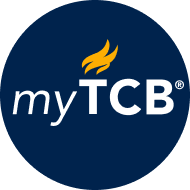


Members of The Conference Board get exclusive access to the full range of products and services that deliver Trusted Insights for What's Ahead ® including webcasts, publications, data and analysis, plus discounts to conferences and events.
25 July 2023 / Report
The pandemic introduced new ways of working in Asia, most notably hybrid and remote models, while the emergence of AI is already having an impact on how work gets done. Senior executives from Asia are faced with maintaining a culture of innovation in a hybrid work environment and integrating AI into everyday operations.
The pandemic introduced new ways of working in Asia, most notably hybrid and remote models, while the emergence of AI is already having an impact on how work gets done. Senior executives from Asia are faced with maintaining a culture of innovation in a hybrid work environment and integrating AI into everyday operations.

myTCB® Members get exclusive access to webcasts, publications, data and analysis, plus discounts to events.
You already have an account with The Conference Board.
Please try to login in with your email or click here if you have forgotten your password.
OpenAI's game-changer: ChatGPT Pro takes the AI assistant to new heights
December 12, 2024
OpenAI's GPT-4o: Creating AI doppelgangers with unsettling ease
December 04, 2024

